Understanding the Legal Drinking Age in Punta Cana, Dominican Republic A Comprehensive Guide for Travelers
Punta Cana, located on the easternmost tip of the Dominican Republic, is renowned for its stunning beaches, luxurious all-inclusive resorts, and vibrant nightlife, making it one of the top vacation destinations in the Caribbean. This tropical paradise attracts millions of tourists from around the globe each year, particularly from the United States and Canada, who come to soak up the sun, enjoy the pristine waters, and indulge in the wide array of amenities offered by the resorts.
The allure of Punta Cana lies in its ability to offer something for everyone. Whether it’s relaxing on the picturesque beaches, engaging in thrilling water sports, exploring the rich cultural heritage of the Dominican Republic, or simply unwinding with a refreshing cocktail at a beachfront bar, Punta Cana promises a memorable and rejuvenating experience. The region’s hospitality industry is well-equipped to cater to international visitors, providing top-notch services and a variety of activities that cater to all age groups.
However, with the influx of tourists, it is crucial for travelers to familiarize themselves with local laws, particularly those regarding alcohol consumption. Understanding these regulations is essential to ensure a smooth and enjoyable vacation without encountering any legal issues.Drinking Age in Punta Cana is a significant aspect that visitors need to be aware of to avoid any potential conflicts with local authorities or resort management.
Adhering to the legal drinking age not only helps in complying with the law but also promotes responsible drinking practices, ensuring the safety and well-being of all visitors. By being informed about the legal drinking age and related regulations in Punta Cana and the Dominican Republic, travelers can fully enjoy their vacation while respecting local customs and laws. This comprehensive guide aims to provide all the necessary information to help tourists navigate the legal landscape of alcohol consumption in Punta Cana, ensuring a worry-free and delightful experience.
1. Legal Drinking Age in the Dominican Republic
1.1. Age Requirement
The legal drinking age in the Dominican Republic is set at 18 years old. This regulation applies uniformly across the country, including popular tourist destinations like Punta Cana. This means that anyone aged 18 or older can legally purchase and consume alcoholic beverages in restaurants, bars, nightclubs, and all-inclusive resorts throughout the Dominican Republic.
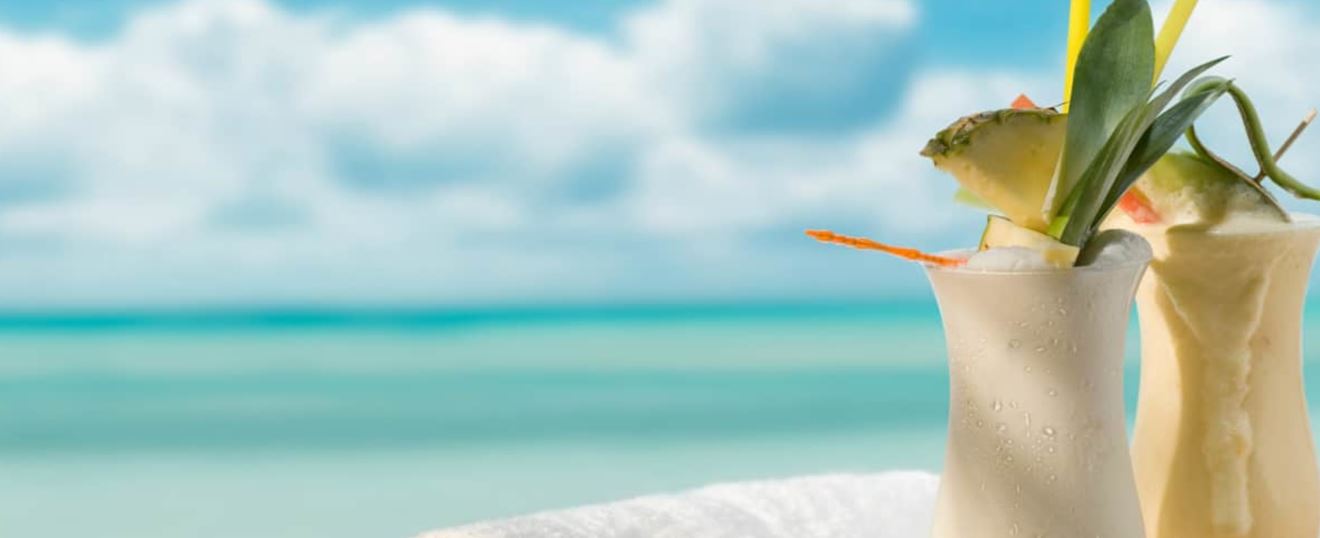
Comparatively, the Dominican Republic’s legal drinking age aligns with many countries worldwide but differs significantly from others. For instance, in the United States, the legal drinking age is 21, which often causes confusion for American tourists visiting Punta Cana. In contrast, many European countries, such as Germany, allow alcohol consumption at 16 for beer and wine, and at 18 for spirits. By setting the drinking age at 18, the Dominican Republic positions itself similarly to other Caribbean nations and various countries in Latin America, making it a familiar standard for international travelers.
1.2. Enforcement and Compliance
Ensuring that the legal drinking age is respected in Punta Cana involves a coordinated effort between resort management, bar owners, and local law enforcement. These stakeholders play crucial roles in enforcing the age limit and maintaining a safe environment for both residents and tourists.
How Resorts and Bars Enforce the Drinking Age
All-inclusive resorts and local bars in Punta Cana are vigilant about enforcing the legal drinking age. Upon check-in at resorts, guests are often required to provide identification proving their age. This practice extends to bars and nightclubs, where patrons might be asked to show ID before being served alcoholic beverages. Staff members, including bartenders and waitstaff, are trained to recognize valid forms of identification and to handle situations where underage guests attempt to procure alcohol.
To further support these efforts, many establishments implement wristband systems. Guests who are 18 or older receive a specific colored wristband that signals their eligibility to consume alcohol. This system helps staff quickly identify those who are legally allowed to drink, reducing the likelihood of underage drinking incidents.
Role of Local Law Enforcement
Local law enforcement agencies in Punta Cana also play a vital role in upholding the legal drinking age. Police officers conduct routine checks at bars, clubs, and resorts to ensure compliance with the law. They are authorized to request identification from individuals suspected of being underage and to take appropriate action if violations are discovered.
Penalties for non-compliance with the drinking age laws can be stringent. Establishments found serving alcohol to minors may face fines, temporary closure, or even revocation of their liquor licenses. Additionally, individuals who provide alcohol to minors, whether intentionally or inadvertently, can also face legal repercussions, including fines or other penalties.
Law enforcement’s involvement is not limited to punitive measures; they also engage in preventive efforts. Educational campaigns aimed at tourists and locals alike emphasize the importance of adhering to the legal drinking age and promote responsible drinking behaviors. These initiatives are often in collaboration with hospitality industry stakeholders to ensure a unified approach to alcohol regulation.
In summary, the legal drinking age in the Dominican Republic is strictly enforced through a combination of resort and bar policies, along with active involvement from local law enforcement. By understanding and respecting these regulations, tourists can enjoy their time in Punta Cana responsibly and without legal complications. This proactive approach not only ensures compliance with the law but also contributes to a safer and more enjoyable environment for all visitors.
2. Underage Drinking in the Dominican Republic
2.1. Legal Consequences
Underage drinking is a significant concern in the Dominican Republic, and the legal system has strict measures in place to deter and penalize such activities. The Dominican Republic’s laws are clear about the consequences for both underage individuals caught consuming alcohol and those who facilitate this illegal activity.
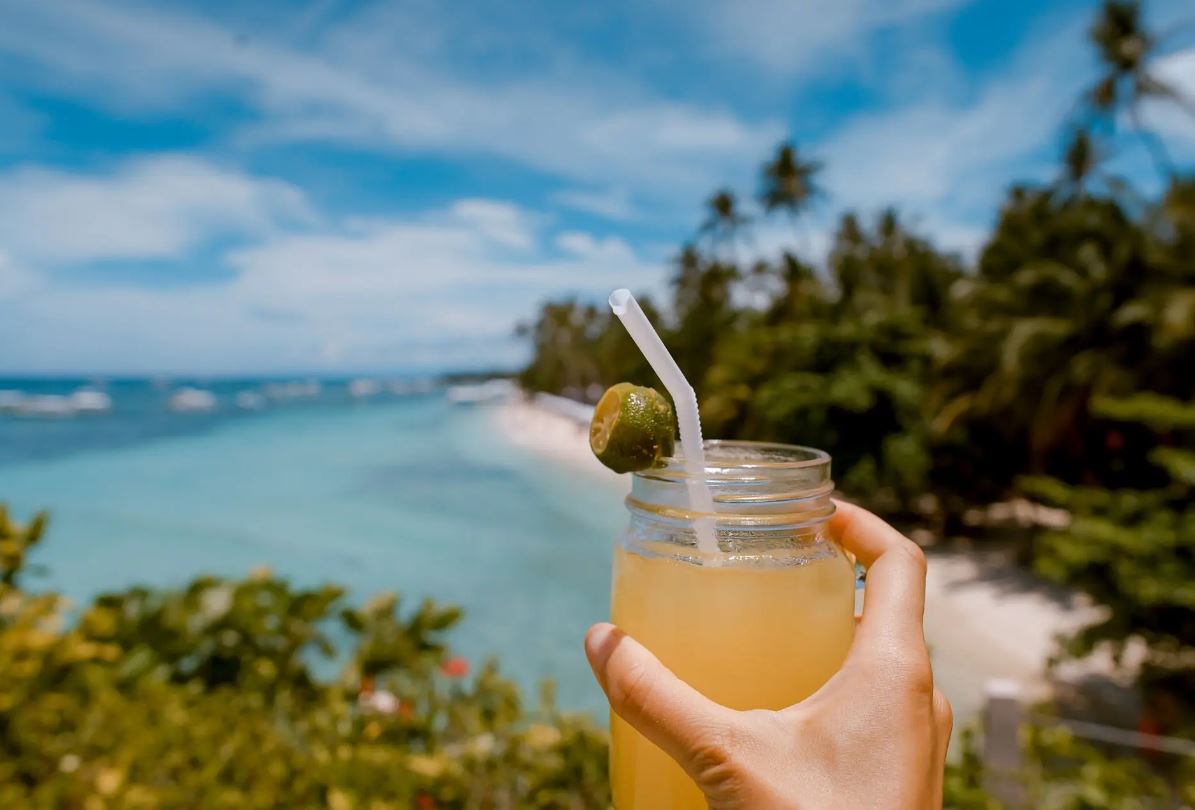
Penalties for Underage Drinking
Individuals under the age of 18 who are found consuming alcohol in the Dominican Republic can face several legal repercussions. While the severity of the penalties can vary depending on the circumstances and the discretion of the authorities, common consequences include fines and mandatory participation in educational programs about the risks and consequences of alcohol consumption. In some cases, the parents or guardians of the underage individual may also be notified and could face penalties for failing to supervise their child adequately.
Penalties for Providing Alcohol to Minors
The penalties for adults who provide alcohol to minors are particularly stringent. Anyone caught selling or giving alcohol to individuals under 18 can face hefty fines, criminal charges, and potential jail time. Businesses such as bars, restaurants, and all-inclusive resorts that are found to be in violation of these laws risk severe penalties, including the revocation of their licenses to operate. These establishments can also face substantial fines and could be temporarily or permanently closed down as a result of non-compliance.
2.2. Enforcement Mechanisms
The Dominican Republic employs several enforcement mechanisms to prevent underage drinking, ensuring that the laws are upheld and that minors are protected from the dangers associated with alcohol consumption.
Measures Taken by Authorities to Prevent Underage Drinking
Authorities in the Dominican Republic are proactive in their efforts to prevent underage drinking. These measures include routine inspections of establishments that sell alcohol, such as bars, clubs, and resorts. During these inspections, officials verify that these businesses are adhering to the legal drinking age regulations and that they have adequate systems in place to check the ages of their patrons.
Educational campaigns are another critical component of the enforcement strategy. These campaigns aim to raise awareness among both residents and tourists about the legal drinking age and the associated penalties for non-compliance. They often involve collaboration between local law enforcement, the tourism industry, and community organizations to disseminate information effectively.
Examples of Recent Cases or Statistics
Recent statistics and cases highlight the effectiveness of these enforcement measures and the ongoing challenges in curbing underage drinking. For instance, a notable case in Punta Cana involved a popular nightclub that was temporarily shut down after authorities discovered that it had repeatedly served alcohol to minors. The establishment faced substantial fines and was required to implement stricter age verification processes before it was allowed to reopen.
In another instance, a high-profile campaign in 2023 focused on educating tourists about the legal drinking age resulted in a significant decrease in reported cases of underage drinking during the peak tourist season. The campaign included visible signage at resorts and bars, as well as informational brochures distributed at airports and hotels, emphasizing the importance of adhering to local alcohol laws.
Statistics from recent years show a downward trend in the number of underage drinking incidents, reflecting the success of the combined efforts of law enforcement and the hospitality industry. According to a report by the Dominican Republic’s Ministry of Tourism, the number of citations issued for underage drinking dropped by 15% from 2021 to 2023, indicating improved compliance and awareness among both locals and visitors.
In conclusion, the Dominican Republic takes underage drinking seriously, with stringent penalties and robust enforcement mechanisms in place to prevent it. By understanding the legal consequences and the measures taken by authorities, tourists and locals alike can contribute to a safer and more responsible drinking culture in the country.
3. Alcohol Consumption in Punta Cana’s All-Inclusive Resorts
3.1. Resort Policies
All-inclusive resorts in Punta Cana are known for offering an array of amenities, including unlimited access to food and beverages. However, these resorts have established specific policies regarding alcohol consumption to ensure guest safety and compliance with local laws.
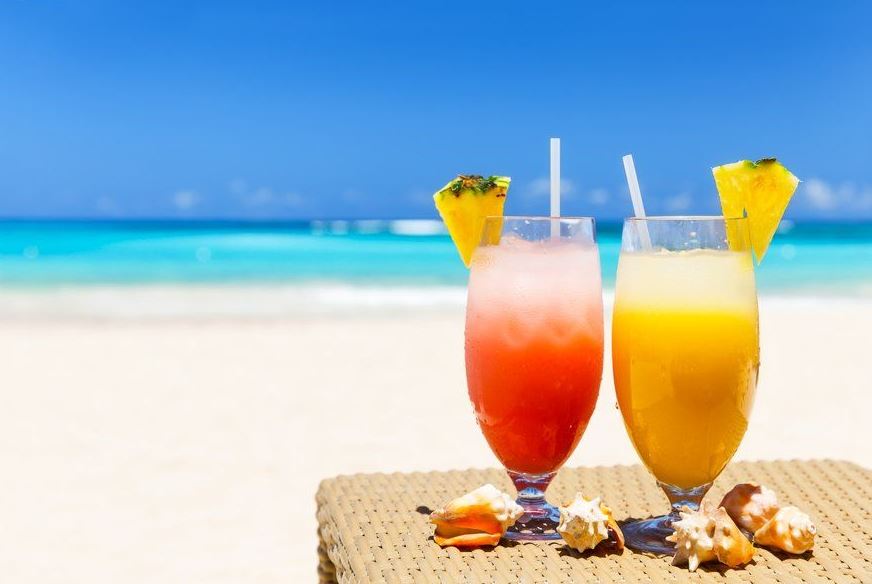
General Policies of All-Inclusive Resorts Regarding Alcohol Consumption
The general policy at most all-inclusive resorts is that alcohol is available to guests who are 18 years or older. This aligns with the legal drinking age in the Dominican Republic. Upon check-in, guests typically receive a wristband or other identifier that grants them access to the resort’s amenities, including alcoholic beverages. These wristbands often help staff quickly identify who is legally allowed to consume alcohol.
Resorts also implement a “drink responsibly” policy to promote moderate alcohol consumption. This includes limiting the number of drinks served at one time, offering a variety of non-alcoholic beverages, and providing information on responsible drinking habits. Additionally, resorts may hold educational sessions or distribute materials that highlight the dangers of excessive drinking.
Differences Between Various Resorts
While the overarching policy of allowing alcohol consumption for guests 18 and older is consistent across all-inclusive resorts in Punta Cana, there can be differences in how each resort implements and enforces these policies. For instance, some higher-end resorts may offer premium alcohol brands and craft cocktails, while others might stick to more basic offerings.
Luxury resorts may also have more rigorous age verification processes and stricter enforcement of drinking rules compared to budget-friendly resorts. The level of staff training on handling alcohol-related issues can vary, affecting how well policies are implemented.
3.2. Common Practices
How Resorts Manage and Monitor Alcohol Consumption
Resorts employ several strategies to manage and monitor alcohol consumption. One common practice is the use of the aforementioned wristbands, which helps staff easily identify guests who are of legal drinking age. In addition, many resorts have bartenders and waitstaff trained to recognize signs of intoxication and to handle guests who may have had too much to drink.
Resorts often have a designated security team that patrols the property, including bars and nightlife areas, to ensure that guests are not engaging in disruptive or dangerous behavior. This team is also responsible for intervening if underage guests are found attempting to consume alcohol.
Role of Staff and Management in Enforcing Rules
Staff and management play a critical role in enforcing alcohol consumption policies. Bartenders and servers are the first line of defense, responsible for checking IDs and monitoring guests’ alcohol intake. They are trained to refuse service to anyone who is visibly intoxicated or underage.
Management supports these efforts by establishing clear policies and providing ongoing training for staff. They also handle escalated situations, such as when guests become belligerent or refuse to comply with the resort’s rules. In some cases, management may work with local law enforcement to address severe incidents.
3.3. Implications for Guests
What Guests Should Be Aware Of
Guests at all-inclusive resorts in Punta Cana should be aware of the legal drinking age of 18 and the resort’s policies on alcohol consumption. It is important for guests to carry identification that proves their age, as they may be asked to present it at bars and restaurants within the resort.
Guests should also be mindful of the resort’s responsible drinking policies. Overconsumption can lead to health risks and negatively impact the vacation experience. Resorts often provide information on the potential consequences of excessive drinking and encourage guests to alternate alcoholic beverages with water or non-alcoholic drinks.
Responsibilities of Guests Regarding Local Laws
Guests have a responsibility to respect local laws and resort policies regarding alcohol consumption. This includes refraining from providing alcohol to underage individuals and adhering to the rules set by the resort. Violating these regulations can result in penalties, such as being banned from certain areas of the resort or facing legal consequences.
Understanding and following these guidelines ensures that guests can enjoy their vacation safely and responsibly. By being informed and respectful of local laws, guests contribute to a positive and enjoyable environment for everyone at the resort.
4. The Legal Drinking Age on Punta Cana Beaches
4.1. Beach Bars and Clubs
Punta Cana’s beautiful beaches are dotted with numerous beach bars and clubs that offer refreshing drinks and vibrant nightlife. Understanding the policies of these establishments regarding alcohol service is essential for tourists to enjoy their beach experience without any legal complications.
Policies of Beach Bars and Clubs Regarding Alcohol Service
Beach bars and clubs in Punta Cana adhere strictly to the legal drinking age of 18. These establishments are popular spots for both locals and tourists to unwind, enjoy the scenic views, and partake in the lively beach culture. Given their popularity, beach bars and clubs have clear policies in place to regulate the sale and consumption of alcohol.
Upon entering a beach bar or club, patrons may be required to show a valid ID to verify their age. This practice is standard to ensure compliance with the legal drinking age. Some establishments may use wristbands or stamps to indicate that a patron is of legal drinking age, making it easier for staff to monitor alcohol service.
Age Restrictions and Enforcement
Enforcement of age restrictions is a priority for beach bars and clubs. Staff members, including bartenders and security personnel, are trained to check IDs and identify any attempts by underage individuals to purchase or consume alcohol. They are vigilant in ensuring that only those who meet the legal drinking age criteria are served alcoholic beverages.
Security personnel play a crucial role in maintaining order and enforcing age restrictions. They are tasked with monitoring the premises, particularly during busy times, to prevent underage drinking and manage any potential issues that may arise from alcohol consumption. Failure to comply with these regulations can result in fines for the establishment and potential closure.
4.2. Drinking on the Beach
Drinking on the beach in Punta Cana is a popular activity among tourists looking to relax by the ocean with a drink in hand. However, it is important to follow guidelines and respect both resort policies and local laws to ensure a safe and enjoyable experience.
Guidelines for Consuming Alcohol on the Beach
When consuming alcohol on the beach, tourists should be mindful of a few guidelines to stay within the legal framework. Firstly, always carry identification to prove your age if asked by law enforcement or beach bar staff. It’s also advisable to keep alcohol consumption moderate to avoid intoxication, which can lead to risky behavior and potential accidents.
Many beach bars provide drink service directly to beachgoers, making it convenient to enjoy a beverage while lounging by the water. These services typically follow the same ID verification process as the bars themselves, ensuring that only those of legal drinking age are served.
Interaction with Resort Policies and Local Laws
Resort policies on alcohol consumption often extend to their designated beach areas. Guests staying at all-inclusive resorts should be aware that the same age restrictions and responsible drinking guidelines apply on the beach as within the resort. Resorts may have specific areas where alcohol can be consumed, and it is important to respect these boundaries.
Local laws also play a significant role in regulating beach drinking activities. Public intoxication laws are enforced to ensure the safety and well-being of all beachgoers. Law enforcement officers patrol the beaches, especially during peak tourist seasons, to monitor compliance with these laws. They have the authority to check IDs and address any violations, such as underage drinking or disruptive behavior caused by excessive alcohol consumption.
In conclusion, understanding and adhering to the legal drinking age on Punta Cana beaches is crucial for a trouble-free beach experience. By following the policies of beach bars and clubs, respecting age restrictions, and being mindful of both resort guidelines and local laws, tourists can enjoy their time on the beach responsibly. This not only enhances personal safety but also contributes to a positive and enjoyable atmosphere for everyone.
5. Alternative, Non-Alcoholic Beverages
5.1. Variety of Non-Alcoholic Options
In Punta Cana, the range of non-alcoholic beverages is as diverse and enticing as the alcoholic ones. These drinks offer refreshing alternatives for those who prefer to avoid alcohol while still enjoying the vibrant flavors of the tropics.
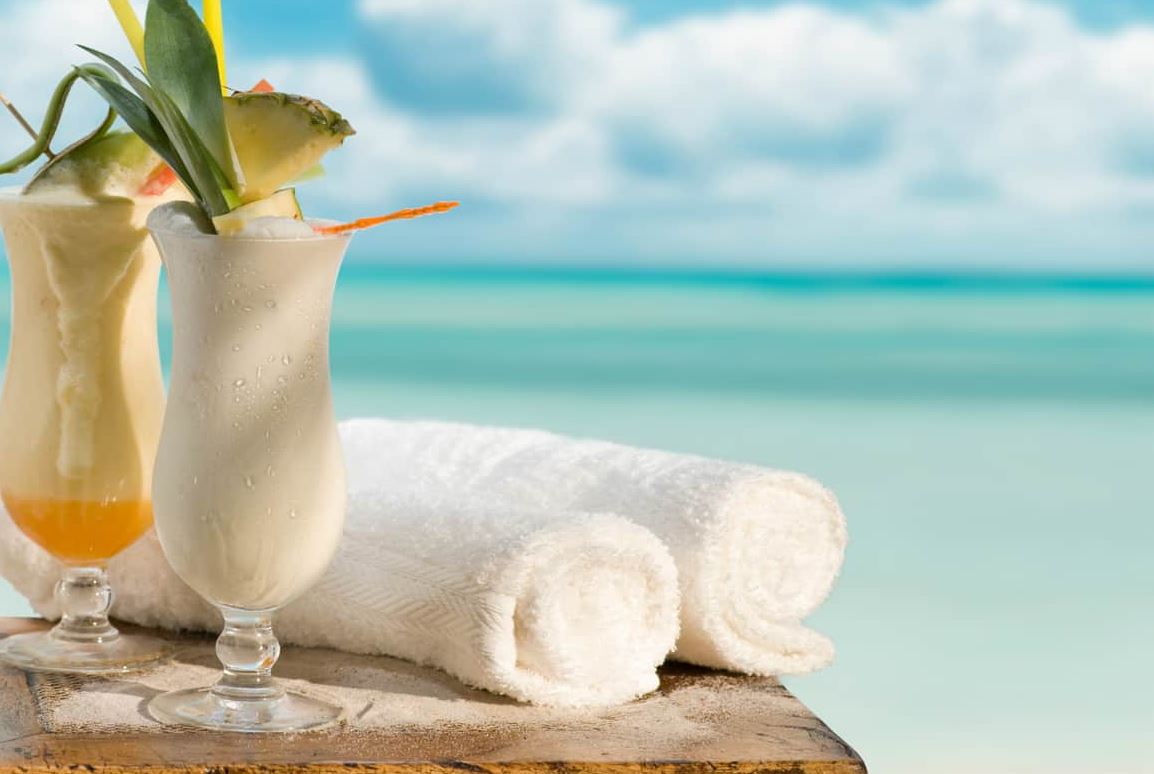
Tropical Cocktails with Fresh Fruits and Juices
One of the most delightful aspects of Punta Cana’s beverage offerings is the array of tropical cocktails made with fresh fruits and juices. These drinks capture the essence of the Caribbean with their vibrant colors and bold flavors. Common ingredients include mangoes, pineapples, coconuts, and passion fruits, which are often blended with ice and other natural ingredients to create delicious and visually appealing drinks.
Some popular non-alcoholic tropical cocktails include the Virgin Piña Colada, a creamy blend of coconut milk and pineapple juice, and the Mango Tango, a refreshing mix of mango puree and lime juice. These beverages not only quench your thirst but also provide a taste of the exotic fruits that are abundant in the region.
Non-Alcoholic Beers and Other Beverages
For those who enjoy the taste of beer but prefer not to consume alcohol, non-alcoholic beers are widely available in Punta Cana. These beverages mimic the flavor profile of traditional beers without the intoxicating effects, allowing guests to enjoy a cold, refreshing drink without compromising their preferences.
In addition to non-alcoholic beers, many resorts and bars offer a variety of other non-alcoholic beverages, such as sparkling waters, sodas, and specialty mocktails. Mocktails, in particular, are a creative and flavorful option, combining various fruit juices, herbs, and spices to replicate the complexity of alcoholic cocktails without the alcohol. Popular mocktails might include the Virgin Mojito, a blend of mint, lime, and soda water, or the Tropical Sunrise, a mix of orange juice and grenadine.
5.2. Recommendations for Non-Drinkers
Non-drinkers can fully enjoy their time in Punta Cana by exploring the extensive selection of non-alcoholic drinks available and engaging in the many activities the destination has to offer.
Popular Non-Alcoholic Drinks in Punta Cana
Several non-alcoholic drinks have gained popularity among visitors to Punta Cana. Apart from the aforementioned Virgin Piña Colada and Mango Tango, other favorites include the Coconut Water Cooler, a hydrating and refreshing drink made from fresh coconut water, and the Tropical Breeze, a delightful combination of passion fruit juice and lemonade.
Juice bars and cafes often provide freshly squeezed juices and smoothies, offering a healthy and delicious way to stay refreshed in the tropical heat. These drinks can be customized with various fruits, vegetables, and superfoods to suit individual tastes and nutritional preferences.
How to Enjoy an All-Inclusive Vacation Without Alcohol
An all-inclusive vacation in Punta Cana offers much more than just alcohol. Non-drinkers can immerse themselves in a wide range of activities and experiences that make the trip memorable and enjoyable.
Start the day with a refreshing smoothie or a freshly brewed coffee while taking in the stunning beach views. Engage in water sports such as snorkeling, kayaking, or paddleboarding to explore the crystal-clear waters and marine life. Many resorts offer yoga and fitness classes, providing a great way to stay active and rejuvenated.
Explore local culture by participating in cooking classes, where you can learn to prepare traditional Dominican dishes using fresh, local ingredients. Take guided tours to nearby attractions, such as the historic town of Santo Domingo or the breathtaking Saona Island.
In the evenings, enjoy live entertainment shows, including traditional music and dance performances, or unwind with a relaxing massage at the resort spa. With so many non-alcoholic drink options and activities available, non-drinkers can have a fulfilling and enriching vacation experience in Punta Cana.
In conclusion, Punta Cana offers a wealth of alternative, non-alcoholic beverages that cater to diverse tastes and preferences. By exploring these options and engaging in the myriad activities available, non-drinkers can enjoy a vibrant and satisfying all-inclusive vacation in this tropical paradise.
6. Pre-book Your Punta Cana Adventures & Tours
6.1. Benefits of Booking in Advance
Booking your adventures and tours in Punta Cana in advance comes with several significant advantages. Whether you are planning a relaxing vacation or an action-packed getaway, pre-booking can enhance your experience and ensure you make the most of your time in this beautiful destination.
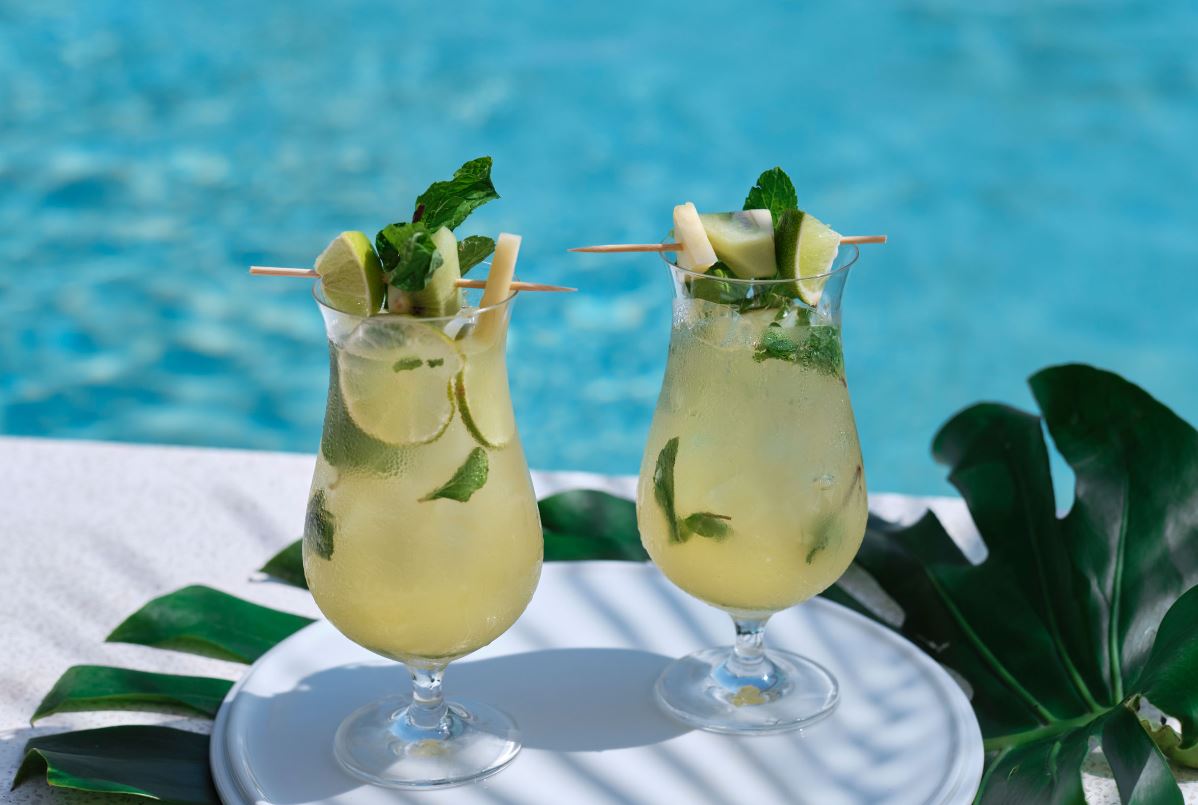
Advantages of Pre-booking Tours and Activities
One of the primary benefits of booking tours and activities in advance is the assurance of availability. Punta Cana is a popular tourist destination, and many excursions and activities can fill up quickly, especially during peak travel seasons. By reserving your spot ahead of time, you avoid the disappointment of finding your desired tour fully booked upon arrival.
Pre-booking also often comes with financial benefits. Many tour operators offer discounts or special rates for early reservations, allowing you to save money. Additionally, booking in advance provides an opportunity to budget your trip more effectively, as you will have a clearer idea of your expenses before you even leave home.
Avoiding Last-minute Hassles and Ensuring Availability
Avoiding last-minute hassles is another significant advantage of pre-booking. Upon arriving in Punta Cana, the last thing you want is to spend valuable vacation time researching and arranging activities. By organizing your tours and excursions beforehand, you can relax and enjoy your vacation from the moment you arrive.
Pre-booking also ensures that you secure spots on the most popular and in-demand activities, which might not be available if you wait until the last minute. This is particularly important for unique or limited-capacity experiences such as private boat tours, guided hikes, or cultural excursions, where availability can be highly restricted.
6.2. Available Tours and Excursions
Punta Cana offers a wide variety of tours and activities that cater to all interests and adventure levels. From exploring natural wonders to experiencing local culture, there is something for everyone.
Overview of Popular Tours and Activities in Punta Cana
One of the most popular excursions in Punta Cana is a visit to Saona Island, a stunning tropical paradise known for its white sandy beaches and crystal-clear waters. Many tours include a catamaran or speedboat ride to the island, with opportunities for snorkeling and a traditional Dominican lunch.
For those interested in marine life, a snorkeling or scuba diving tour is a must. The vibrant coral reefs and diverse marine species make Punta Cana a top destination for underwater exploration. Many operators offer beginner-friendly options as well as advanced dives for experienced divers.
Adventure seekers will enjoy zip-lining tours, which offer an exhilarating way to experience the lush landscapes of the Dominican Republic. Another exciting option is a buggy or ATV tour, allowing you to explore the countryside and visit remote areas that are not accessible by regular vehicles.
Cultural tours are also popular, providing insights into the local history and traditions. You can visit historic sites, such as the Altos de Chavón village, or take a tour of a local coffee or cocoa plantation to learn about the production processes and enjoy tastings.
Recommendations for Booking and Payment Options
When booking tours and excursions, it is advisable to use reputable tour operators who have positive reviews and a proven track record. Many resorts have partnerships with local tour companies, and their concierge services can assist you in making arrangements. Online booking platforms also offer a convenient way to compare options and read customer reviews.
In terms of payment, most tour operators accept major credit cards and online payment methods, making it easy to secure your reservations from anywhere in the world. Some may also offer flexible payment options, such as deposits with the balance due on the day of the tour, or pay-later schemes that allow you to finalize payment closer to your travel date.
In conclusion, pre-booking your Punta Cana adventures and tours is a smart way to enhance your vacation experience. By ensuring availability and avoiding last-minute stress, you can fully enjoy the diverse range of activities this tropical paradise has to offer. Whether you’re looking for relaxation, adventure, or cultural immersion, planning ahead will help you make the most of your time in Punta Cana.
In summary, understanding the legal drinking age in Punta Cana is crucial for ensuring a safe and enjoyable vacation. The legal drinking age in the Dominican Republic is 18 years old, and this regulation is strictly enforced in resorts, bars, clubs, and on beaches. Both locals and tourists must comply with these laws to avoid legal penalties, which can include fines and other severe consequences.
Underage drinking and providing alcohol to minors are taken seriously, with stringent measures in place to prevent such activities. Resorts and bars implement rigorous ID checks, and local law enforcement conducts regular inspections to maintain compliance. For those who prefer not to drink alcohol, Punta Cana offers a variety of non-alcoholic beverages, including refreshing tropical cocktails made from fresh fruits and juices, as well as non-alcoholic beers.
To maximize your vacation experience, pre-booking tours and excursions is highly recommended. This approach ensures availability, avoids last-minute hassles, and can even provide cost savings through early booking discounts. Popular activities include visits to Saona Island, snorkeling, scuba diving, zip-lining, and cultural tours, all of which offer unique and memorable experiences.
By being informed and prepared, you can enjoy all that Punta Cana has to offer while ensuring a smooth and enjoyable vacation.
Age -Discover DannyLux Age and His Journey from TikTok Star to Pop Sensation
Comprehensive Analysis of Yu-Gi-Oh!’s Age of Overlord card list A Deep Dive into the Latest Core Booster Set
Understanding Sexual Health Education The Age of Consent in WA State and Support for Rape Victims
Unveiling Luke Beasley Age and Its Impact on His Basketball Career An In-Depth Analysis
Understanding the Age of Consent for Indiana Legal Implications and Consequences
Erin Perrine age Navigating the Corridors of Power from Rochester Roots to the Trump Campaign
Kimberly Martin age The Trailblazing ESPN NFL Analyst Shaping Sports Journalism